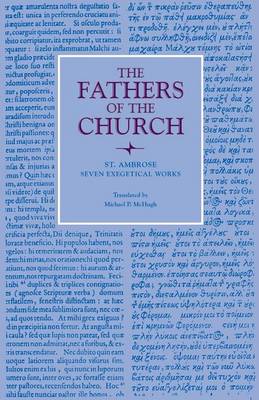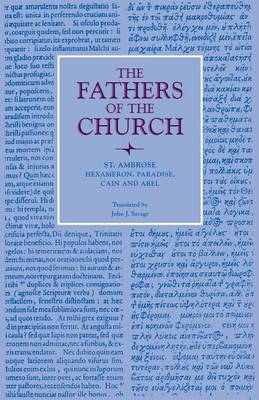Fathers of the Church
2 total works
St. Ambrose, Bishop of Milan A.D. 373-397, enjoyed a great contemporary reputation for his sermons and homilies, to whose eloquence St. Augustine of Hippo himself gives witness. But, while we have from Augustine hundreds of sermons in virtually their original form, Ambrose's pulpit oratory has not come down to us as delivered. However, Ambrose would often recast his sermons as treatises, and seven of these are presented in this volume. These works are mainly an exegesis of many parts of the Bible, particularly of portions of Genesis, Deuteronomy, Job, and the Song of Songs (on which Issac, or the Soul is in large part a commentary). The Psalms make their echo on nearly every page, as do the Gospels. In special contexts, two apocryphal writings receive attention, IV Esdras and IV Machabees. Ambrose's primary interest is in the moral sense of the Scriptures, and he attains his results through insistent allegorical interpretation. Detailed indices of subjects and of Scripture citations facilitate consultation of Ambrose's thinking on the moral and scriptural problems upon which he, in his time, thought it important for Christians, lay and clerical, to be informed.
Steeped in Greek Christian writings, Ambrose, Bishop of Milan in the fourth century, is known for (among other achievements) his allegorical exegesis of the Old Testament. This volume offers English translations of Ambrose's interpretations of three stories in the Old Testament: of the six days of creation, of the Fall (Adam and Eve's loss of Paradise), and of the brothers Cain and Abel. From these stories are drawn lessons on morality and God's will for humankind.

